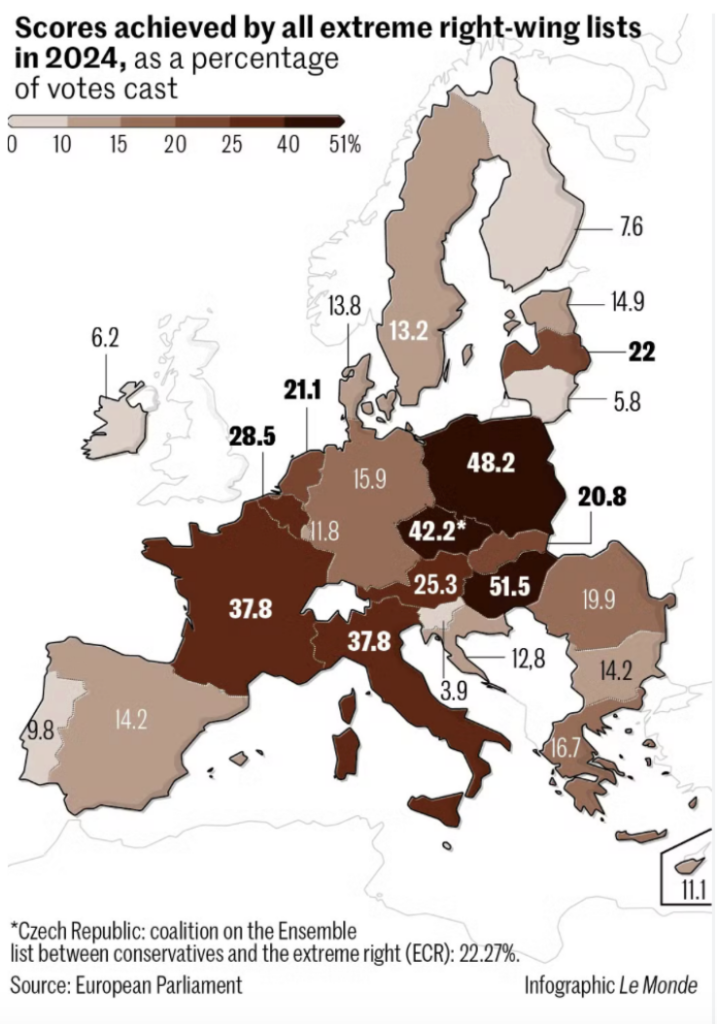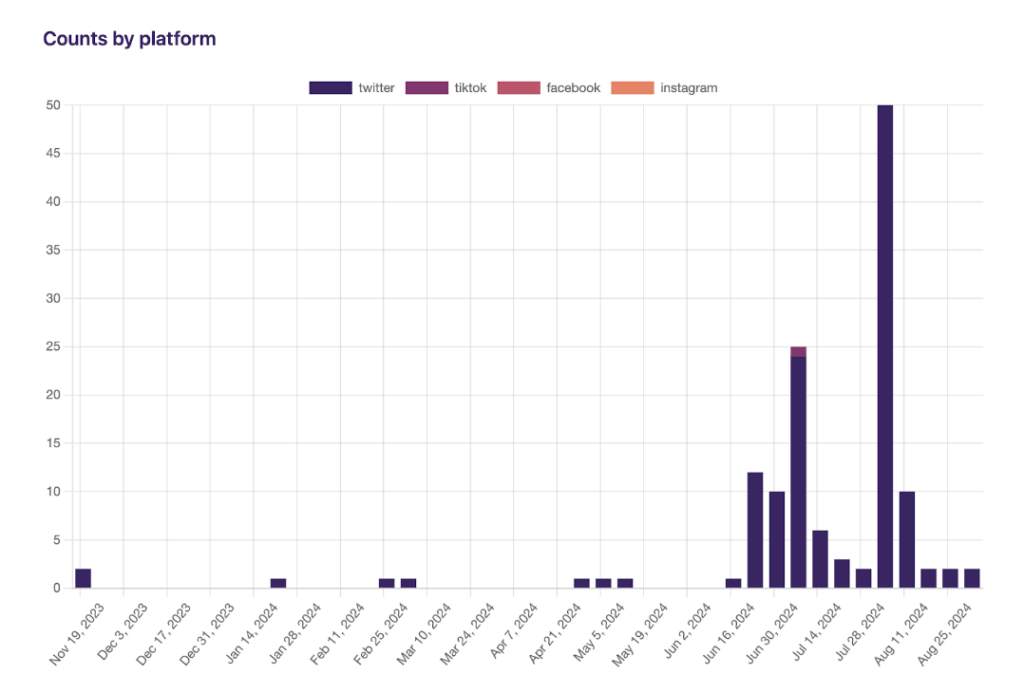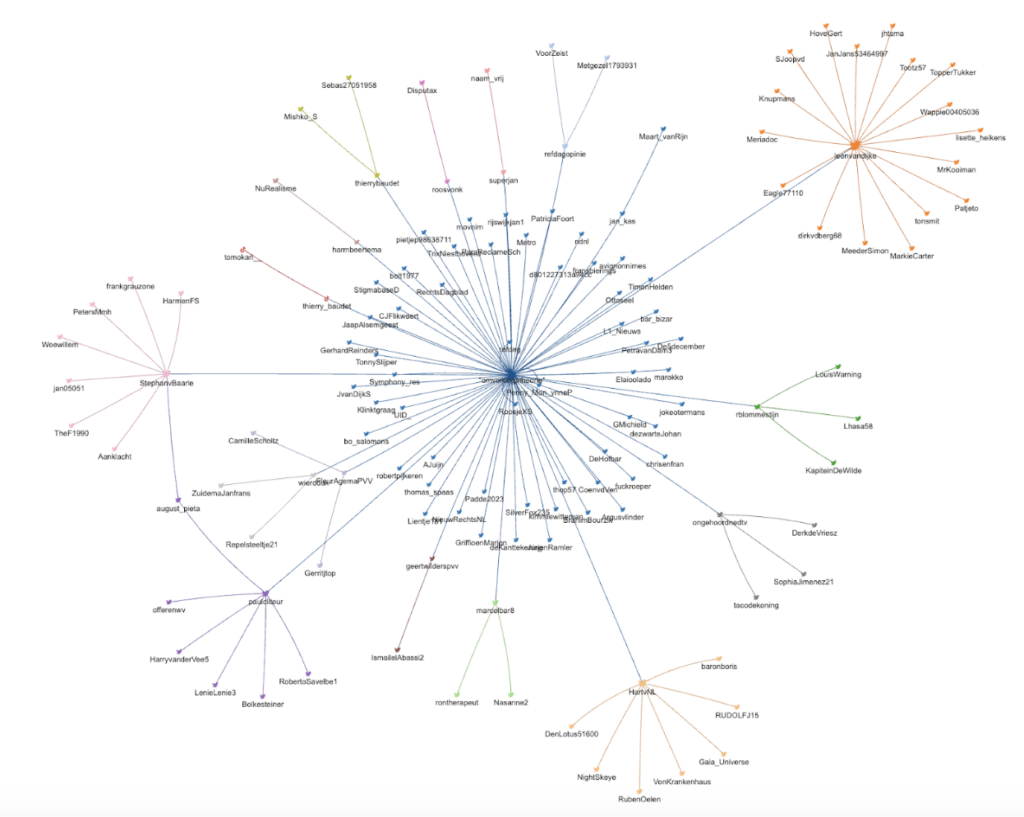WhoDis, Identitarian Politics & Social Polarisation
In the aftermath of the European Parliamentary elections between 6-9 June 2024, far-right political parties did make significant gains, with far-right parties gaining first place with the number of votes in five countries within the European Union. While the far-right surge failed to materialise as some suggested, the ongoing trend continues to emerge where there is ever increasing support for anti-establishment and populist parties, both at a national level in the Netherlands, as well as on a wider European level. The implications of the growth of these parties puts the core of components of democratic values and the protection of rights to question.

What is most concerning is how other political parties, including those in power continue to normalise and legitimise far-right parties by adopting their ideology and rhetoric. Evidence for these changes have caused a growing normalisation of extremist speech within social media platforms, as well as amongst notable figures, such as politicians and influencers, have had a growth in provoking the rise of manifestations of hate speech more frequently. In 2023, in the Netherlands, the police recorded a 33% increase in the number of registrations of discrimination, of which the biggest increase was on the grounds of origin/ race, as well as sexual orientation (Netherlands Institute for Human Rights 2024).
In reaction to this increase in hate speech both online and offline, Justice for Prosperity’s WhoDis programme includes investigative reports researching the origin of hate speech:
- The WhoDis report on “UNVEILING SUBVERSIVE POWER: Shedding light on the slow erosion of our democracies”, which was published in the European Parliament in April 2023.
- The WhoDis Tool which is an AI platform that detects the root causes of radicalisation through the interaction of online and offline activities and discourses
- Our article, A Foetus Barbie in the Mailbox,” Co-Production between Justice for Prosperity and De Groene Amsterdammer, which explores the influence of a network of ultra-conservative groups in Europe that are targeting LGBTQ+ and women’s rights to destabilise the European Union (EU), specifically in the run-up to the June 2024 European Parliamentary elections. The blog post, including the direct link to the article can be found on the WhoDis website.
- Our publication – WhoDis: From Propagation to Persecution: “Tracing the Trajectory of Identitarian Movements from a Grassroots Perspective” which demonstrates the development and normalisation of racist discourse from a grassroot movement to influencing mainstream politics. Further reading can be found on the WhoDis website.
- Producing recommendations to the Dutch Government, including the National Coordinator against Racism and Discrimination, on how to make future as well as how human rights defenders can both be aware of threats to their work, as well as how to proactively prepare against these threats. Further reading can be found on the WhoDis website.
You may be asking yourself : how is it possible to trace back the influence of the discourse online to offline activities ? The answer lies in the key core component of the WhoDis tool which measures the growth of rhetoric online, how this has spread and connects these observations chronologically to offline activities. In order to assist with our research on the normalisation of far-right rhetoric within our societies , JfP has used the WhoDis visualisation tool to understand the spread of keywords and lexicon associated with the far-right. The use of the WhoDis tool has been essential to map the rapid normalisation and spread of GI rhetoric, which has emerged from both populist leaders as well as influential far-right influencers who have the platform and influence to spread rhetoric rapidly.
An example of how narratives develop and reinforce each other through offline and online interaction can be seen through normalisation and spread of reference, both offline and online to Omvolkingstheorie.

Omvolkingstheorie, known in English to the ‘Demographic Replacement Theory’ or ‘ Great Replacement Theory’, which is an ultra-right, racist conspiracy theory implying that there is a secret plot to increase the facilitation of ‘non-white’ migration to replace ‘white’ population in the Netherlands and other European and North American countries. The AIVD (The General Intelligence and Security Service of the Netherlands) calls people who use the word ‘right-wing extremist’. The event that has symbolically marked the switch of the theory from a fringe extreme ideology to a normalised ideology in the Netherlands is within the new government led by Dick Schoff, two members of the cabinet have openly referenced the “Omvolkingstheorie” resulting in increased usage of the term online. In response, far-right, populist and identitarian figures have advocated for Remigration to be implemented as to facilitate the ‘repatriation’ (i.e. deportation) of non-ethnically European migrants from Europe to their country of origin, irrespective of their citizenship status. This demonstrates that the re-conceptualisation of remigration is a clear, tactical effort by the far-right to change the framing of existing vocabulary, manipulate the narratives involved, and advance their undemocratic interests (Justice for Prosperity WhoDis Report, 2023).

As seen above, we can see the frequency that the searchterm “Omvolkingstheorie” has been mentioned from between the period of 1st September 2023 to 1st September 2024.
We can see a significant peak in the trending of the references to the term “Omvolkingstheorie” between June-July 2024. This peak coincides with the reference by the PVV Minister for Foreign Trade and Development Aid Reinette Klever to Omvolkingstheorie within her previous role as a board member on the Dutch Media Channel Ongehoord Nederland. just before the present Dutch cabinet under the leadership of Prime Minister Dick Schoof was sworn in on July 2, 2024.
Within this period, other influential Dutch Politicians have been implicated with making a reference to this term, which can be expressed in the diagram below, illustrating the spread of the term “Omvolkingstheorie” amongst different actors within the online sphere.

Unfortunately, the trends and observations we can see with the reference to “Omvolkingstheorie” is not unique to the Netherlands, or even other Western European countries in general, as we see the concept of Remigration, which was once firmly labelled and seen as a fringe ideology, has now become increasingly emergent with the mainstream political discourse and narrative. In reality the discourse surrounding promotion of Remigration was initially adopted by Generation Identity a French identitarian movement that has spread in various European countries including in Germany, resulting in making this concept a core value of certain European parties as it has been observed in the AfD Remigration Meeting – which was attended by Martin Sneller in November 2023. Remigration is being increasingly involved by different political leaders, either in use or in rhetoric. Austria’s far-right Freedom Party after the result of the 2024 EP elections called for the government to name an EU “remigration” commissioner after winning the EU elections and the ID EP far right parliamentary group was discussing whether to use remigration as part of their political discourse.

The WhoDis AI tool is an important step for the undermining of polarisation and for the protection of human rights and democracy. Indeed, the tool will permit researchers, journalists and policymakers to conduct effective research and analysis of social media hate speech and polarising trends and how they translate into the offline world. Hate speech and polarisation are dangerous and are a threat to a healthy democracy as they undermine the voices of minorities and disregard compromise and debate which are key to a stable democracy. Providing efficient tools to academia, CSOs and political institutions will permit them to conduct more efficient research to understand how and where polarising trends begin. Such understanding will allow people and institutions working for the common good to tackle efficiently the rise of polarisation which threatens our democracies.

